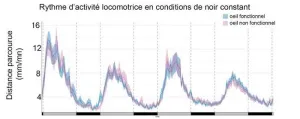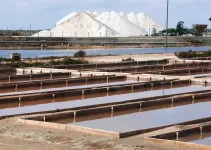(Press-News.org) Researchers propose that governments apply a new method for calculating the benefits that arise from conserving biodiversity and nature for future generations.
The method can be used by governments in cost-benefit analyses for public infrastructure projects, in which the loss of animal and plant species and ‘ecosystem services’ – such as filtering air or water, pollinating crops or the recreational value of a space – are converted into a current monetary value.
This process is designed to make biodiversity loss and the benefits of nature conservation more visible in political decision-making.
However, the international research team says current methods for calculating the values of ecosystem services “fall short” and have devised a new approach, which they believe could easily be deployed in Treasury analysis underpinning future Budget statements.
Their approach, published in the journal Science, takes into consideration the increase in monetary value of nature over time as human income increases, as well as the likely deterioration in biodiversity, making it more of a scarce resource.
This contrasts with current methods, which do not consider how the value of ecosystem services changes over time.
“Our study provides governments with a formula to estimate the future values of scarce ecosystem services that can be used in decision-making processes,” said Moritz Drupp, Professor of Sustainability Economics at the University of Hamburg and lead author on this study.
Two factors play a key role in this value adjustment: on the one hand, income will rise and with it the prosperity of the world's population – by an estimated two percent per year after adjusting for inflation.
As incomes go up, people are willing to pay more to conserve nature.
“On the other hand, the services provided by ecosystems will become more valuable the scarcer they become”, said Professor Drupp. “The fact that scarce goods become more expensive is a fundamental principle in economics, and it also applies here. And in view of current developments, unfortunately, we must expect the loss of biodiversity to continue.”
According to the researchers, the present value of ecosystem services must therefore be set much higher in today’s cost-benefit analyses, to more than 130 percent if just including the rise of income.
If also taking into account the impact on Red List Index endangered species, the value adjustment would amount to more than 180 percent.
Accounting for these effects will increase the likelihood of projects that conserve ecosystem services passing a cost-benefit test.
The research team includes three UK-based authors: Professor Mark Freeman (University of York), Dr. Frank Venmans (LSE), and Professor Ben Groom (University of Exeter).
“The monetary values for the environment that are currently used by policy makers in the appraisal of public investments and regulatory change mean that nature becomes relatively less valuable over time compared to other goods and services,” said Professor Groom.
“Our work shows this is wrong. We propose an uplift in the values of ecosystems over time. This proposal could easily be deployed in the Treasury’s analysis that will underpin future Budget statements.”
Dr Venmans added: “Take coral reefs as a specific example. These are expected to decline in area and biodiversity as the climate changes, meaning that the remaining reefs will be much more valuable than today, and even more so as household incomes rise. This matters when we assess coral reef preservation with long-lasting effects.”
Professor Freeman said: “The government is under considerable pressure from many sides for additional public investment. Ensuring that the protection of ecosystems is appraised in a way that is consistent with other public projects, including HS2 and other infrastructure spending, is critical. This is what our work aims to achieve.”
The researchers say that as political decisions can alleviate the loss of biodiversity, it is important that governments are able to adequately assess the consequences of their decisions today and in the future.
Economist Professor Moritz Drupp has developed this research in collaboration with a team of international researchers from Germany, the UK, France, Denmark, the Netherlands, Norway, Sweden and the United States.
The team advises, among others, HM Treasury, the US White House, and the German Federal Environment Agency.
“Accounting for the increasing benefits from scarce ecosystems” is published on the website of the journal Science.
END
Loss of nature costs more than previously estimated
Researchers propose that governments apply a new method for calculating the benefits that arise from conserving biodiversity and nature for future generations.
2024-03-07
ELSE PRESS RELEASES FROM THIS DATE:
Lack of functional eyes does not affect biological clock in zebrafish
2024-03-07
Functional eyes are not required for a working circadian clock in zebrafish, as a research team1 including CNRS scientists has now shown.
Though it is understood that the eye plays a key role in mammalian adaptation to day-night cycles, the circadian clock is most often studied in nocturnal vertebrates such as mice. The zebrafish, in contrast, is a diurnal vertebrate. Through observation of various zebrafish larvae lacking functional eyes,2 the team of scientists has demonstrated that the latter are not needed to establish circadian rhythms that remain synchronized with light-dark ...
The who's who of bacteria: A reliable way to define species and strains
2024-03-07
What’s in a name? A lot, actually.
For the scientific community, names and labels help organize the world’s organisms so they can be identified, studied, and regulated. But for bacteria, there has never been a reliable method to cohesively organize them into species and strains. It’s a problem, because bacteria are one of the most prevalent life forms, making up roughly 75% of all living species on Earth.
An international research team sought to overcome this challenge, which has long plagued scientists who study bacteria. Kostas Konstantinidis, Richard ...
Forbes ranks the University of Colorado Denver | Anschutz Medical campus among America’s best employers
2024-03-07
The University of Colorado Denver | Anschutz Medical Campus is listed as one of Forbes America’s Best Large Employers for 2024.
The 2024 list of “America’s Best Employers” was conducted by Forbes and market research firm Statista, the world-leading statistics portal and industry ranking provider.
“This ranking is meaningful to our organization because the people who work at CU Anschutz drive our success as a leading academic medical campus by providing unparalleled patient care services, being a premier national leader in research and innovation, and fostering a supportive learning ...
NJIT professor trains college counselors to help fight antisemitism
2024-03-07
As data from the Anti-Defamation League shows antisemitism growing on college campuses in recent years and spiking after the Hamas-Israel conflict, a New Jersey Institute of Technology researcher is doing her part to combat the trend by developing a training model that will help prepare mental health professionals who work with Jewish students.
Modern students are hearing people chant slogans without understanding the intentions behind the words, or finding swastikas and other anti-Jewish graffiti on their campuses, but they are not encountering suitably trained counselors and psychologists who understand their ...
For new moms who rent, housing hardship and mental health are linked
2024-03-07
Becoming a parent comes with lots of bills. For new mothers, being able to afford the rent may help stave off postpartum depression.
“Housing unaffordability has serious implications for mental health,” said Katherine Marcal, an assistant professor at the Rutgers School of Social Work and author of a study published in the journal Psychiatry Research. “For mothers who rent their homes, the ability to make monthly payments appears to have a correlation to well-being.”
Housing hardship – missing rent or mortgage payments, moving in with others, being evicted ...
MD Anderson research highlights for March 7, 2024
2024-03-07
HOUSTON ― The University of Texas MD Anderson Cancer Center’s Research Highlights showcases the latest breakthroughs in cancer care, research and prevention. These advances are made possible through seamless collaboration between MD Anderson’s world-leading clinicians and scientists, bringing discoveries from the lab to the clinic and back.
Recent developments at MD Anderson offer clinical insights into a novel treatment strategy for patients with relapsed/refractory acute myeloid leukemia (AML), molecular insights into Burkitt lymphoma development, a therapeutic target to overcome ...
Prepare workers to weather time shocks
2024-03-07
AUSTIN, Texas — Managers can do much to help their workers become more resilient to inevitable time disruptions in today’s workplace, says new research from The University of Texas at Austin.
With intricate supply chains and operations that sprawl across time zones, workplace time disturbances are only increasing. Such temporal disruptions aren’t just inconvenient, says David Harrison, Texas McCombs professor of management professor: They can carry tangible business costs, such as impaired health, increased mistakes, and reduced ...
The health impacts of migrating by sea
2024-03-07
In the four years after the border wall height was increased from 17 feet to 30 feet along the US-Mexican border, drowning deaths of migrants in the Pacific Ocean off the coast of San Diego increased by 3200%, according to a new study published in JAMA. Co-authors Anna Lussier, M.D, Ph.D. student in the University of California San Diego School of Medicine, and Peter Lindholm, M.D., Ph.D., Gurnee Endowed Chair of Hyperbaric and Diving Medicine Research and professor in residence in the Department of Emergency Medicine at UC San Diego School of Medicine, ...
Democratic backslide a threat to free elections globally
2024-03-07
Over half of the 60 countries holding national elections this year are experiencing a democratic decline, risking the integrity of the electoral process, as reported in the latest Democracy Report from the V-Dem Institute at the University of Gothenburg. The worsening election quality is concerning, given the pivotal role elections play in either reinforcing or mitigating the trend of autocratization.
The wave of democratic backsliding, or autocratization, continues to be noticeable, according to the report. 42 countries are autocratizing, and 71 percent of the world’s population now live in autocracies – up from 48 percent ten years ago. There ...
Agriculture: Increasing frequency and scale of mass mortality events among farmed salmon since 2012
2024-03-07
The frequency and scale of mass mortality events — events where large numbers of organisms die in short periods of time — among farmed salmon have increased since 2012, according to a study published in Scientific Reports.
Gerald Singh and colleagues analysed salmon mortality data from Norway, Canada, the UK, Chile, Australia, New Zealand — countries that produced over 92% of the world’s farmed salmon in 2021 — between 2012 and 2022. They identified 865 million instances of salmon mortality during ...
LAST 30 PRESS RELEASES:
Putting some ‘muscle’ into material design
House fires release harmful compounds into the air
Novel structural insights into Phytophthora effectors challenge long-held assumptions in plant pathology
Q&A: Researchers discuss potential solutions for the feedback loop affecting scientific publishing
A new ecological model highlights how fluctuating environments push microbes to work together
Chapman University researcher warns of structural risks at Grand Renaissance Dam putting property and lives in danger
Courtship is complicated, even in fruit flies
Columbia announces ARPA-H contract to advance science of healthy aging
New NYUAD study reveals hidden stress facing coral reef fish in the Arabian Gulf
36 months later: Distance learning in the wake of COVID-19
Blaming beavers for flood damage is bad policy and bad science, Concordia research shows
The new ‘forever’ contaminant? SFU study raises alarm on marine fiberglass pollution
Shorter early-life telomere length as a predictor of survival
Why do female caribou have antlers?
How studying yeast in the gut could lead to new, better drugs
Chemists thought phosphorus had shown all its cards. It surprised them with a new move
A feedback loop of rising submissions and overburdened peer reviewers threatens the peer review system of the scientific literature
Rediscovered music may never sound the same twice, according to new Surrey study
Ochsner Baton Rouge expands specialty physicians and providers at area clinics and O’Neal hospital
New strategies aim at HIV’s last strongholds
Ambitious climate policy ensures reduction of CO2 emissions
Frontiers in Science Deep Dive webinar series: How bacteria can reclaim lost energy, nutrients, and clean water from wastewater
UMaine researcher develops model to protect freshwater fish worldwide from extinction
Illinois and UChicago physicists develop a new method to measure the expansion rate of the universe
Pathway to residency program helps kids and the pediatrician shortage
How the color of a theater affects sound perception
Ensuring smartphones have not been tampered with
Overdiagnosis of papillary thyroid cancer
Association of dual eligibility and medicare type with quality of postacute care after stroke
Shine a light, build a crystal
[Press-News.org] Loss of nature costs more than previously estimatedResearchers propose that governments apply a new method for calculating the benefits that arise from conserving biodiversity and nature for future generations.


